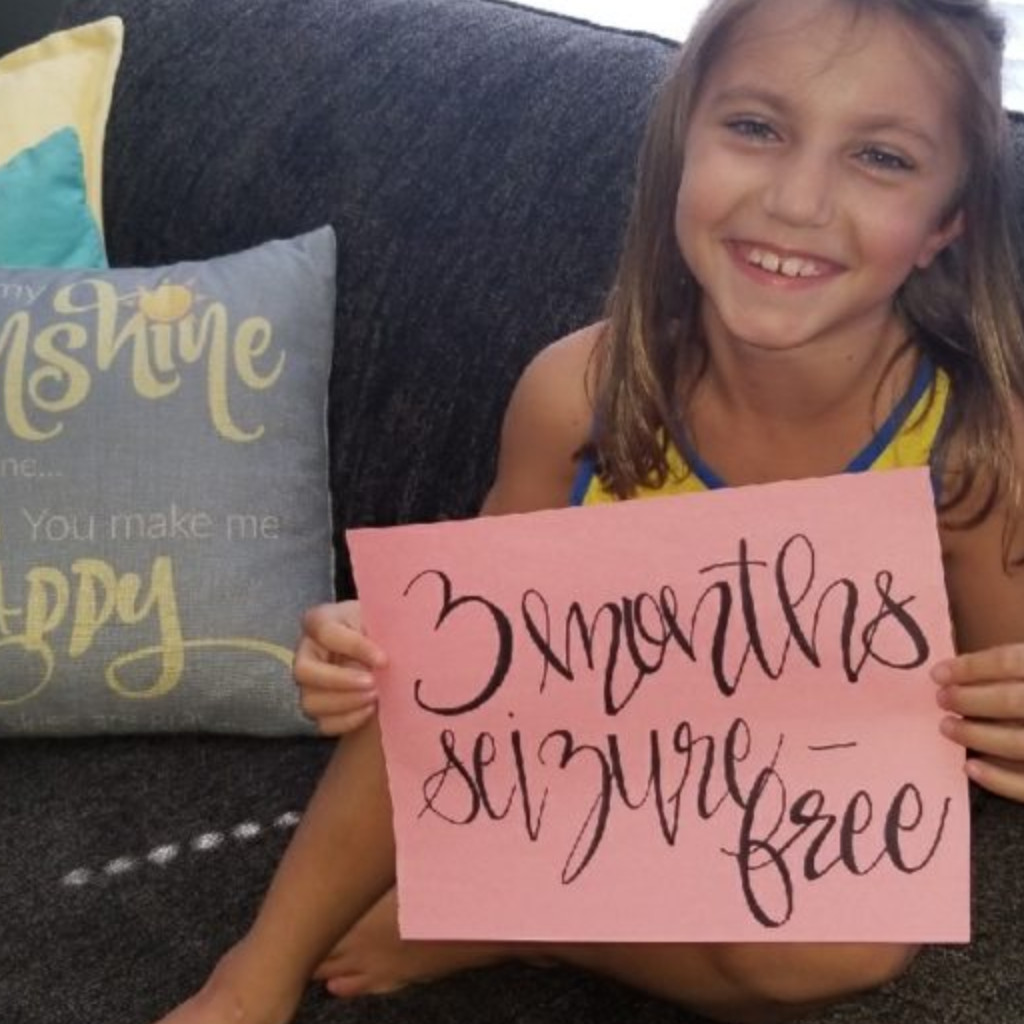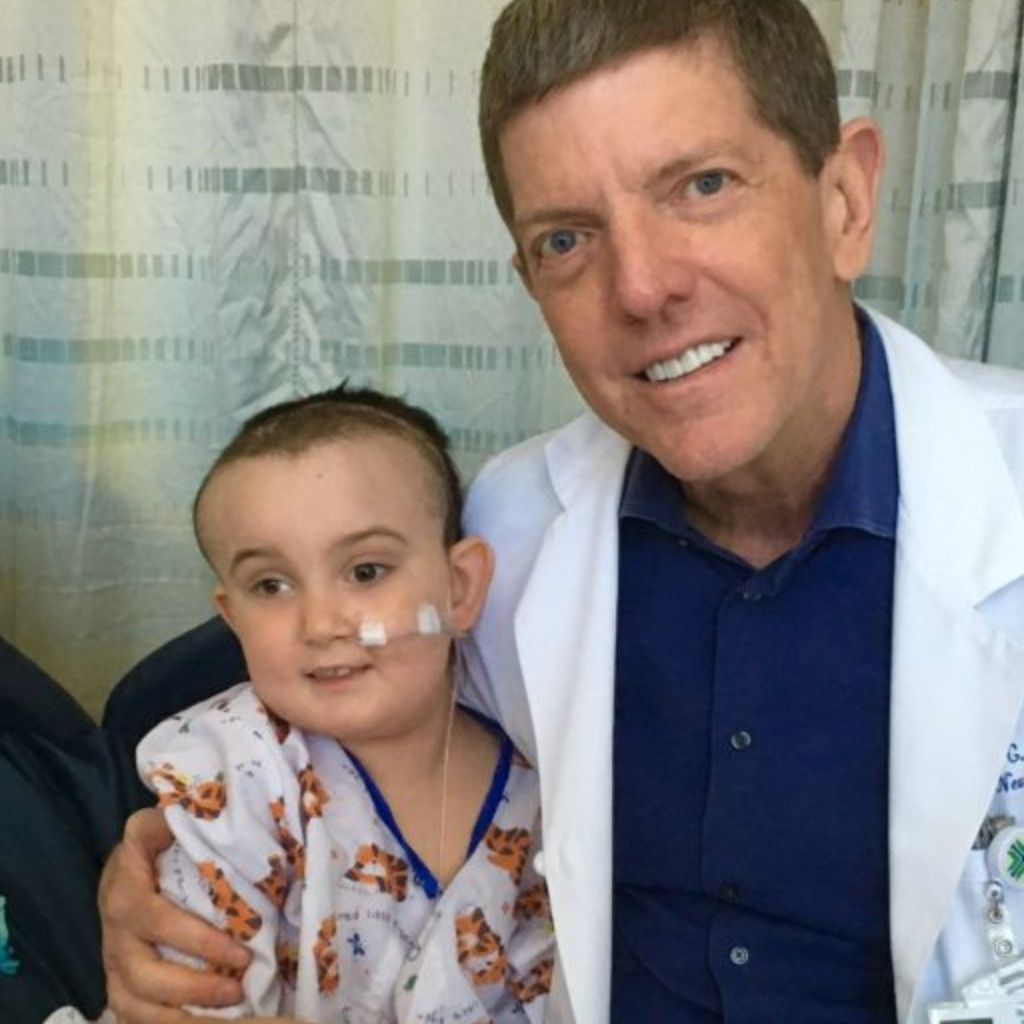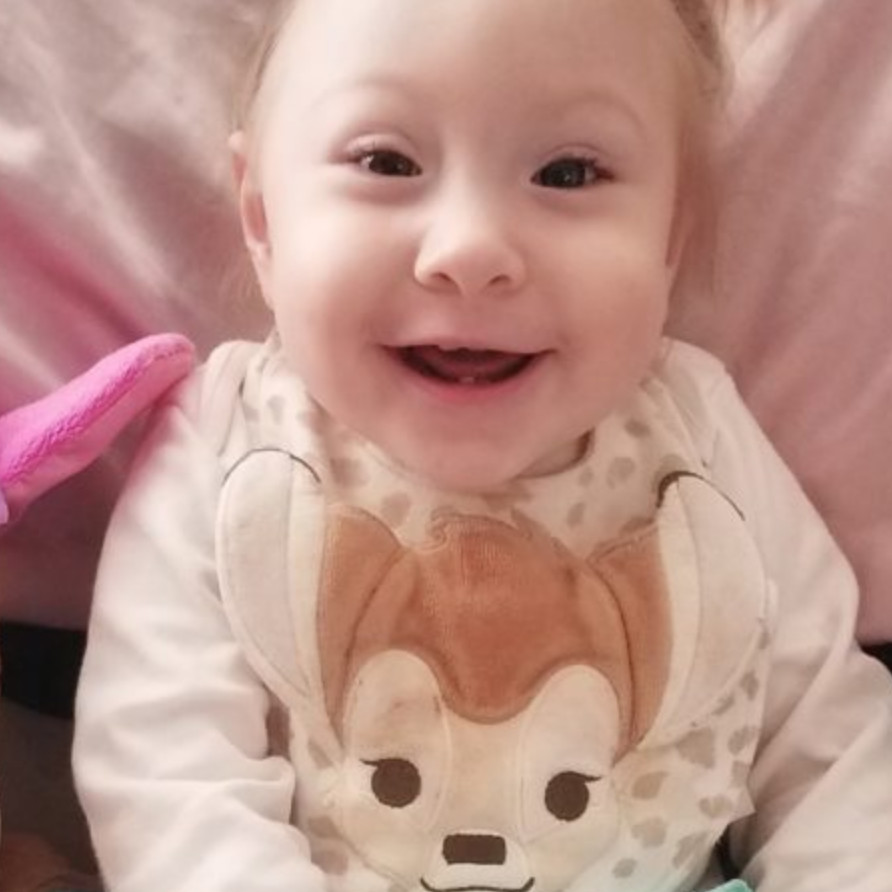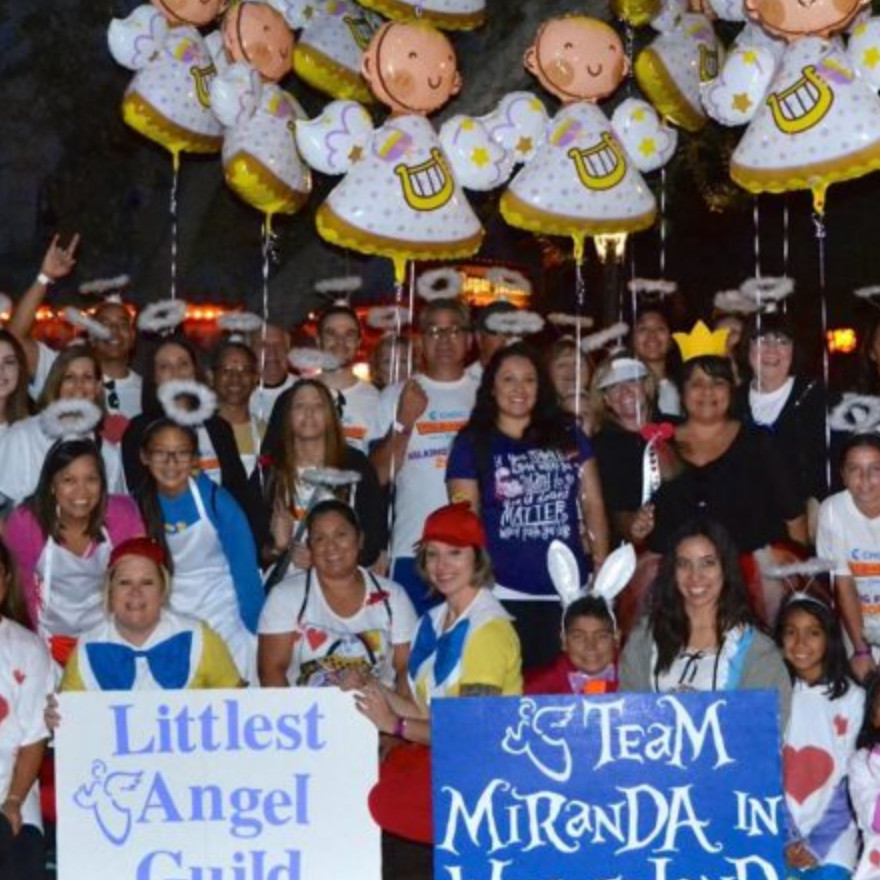Traumatic Brain Injury (TBI) Program
Every parent knows how scary any head injury can be. From a minor bump to a major sports injury, families want peace of mind that their child will heal, grow, and thrive. We share this goal at the CHOC Traumatic Brain Injury (TBI) Program. With top-level inpatient and outpatient services and a level-one trauma center, our multidisciplinary TBI program offers patients care to optimize recovery after a head injury, all under one roof.
Our TBI program began when CHOC saw a need to expand our brain injury services beyond our existing concussion program. We bring together pediatric doctors and other medical specialists across neurology, neurosurgery, neuropsychology, sports medicine, physical medicine and rehabilitation, and primary care to provide treatment for any head injury seen in Orange County children.
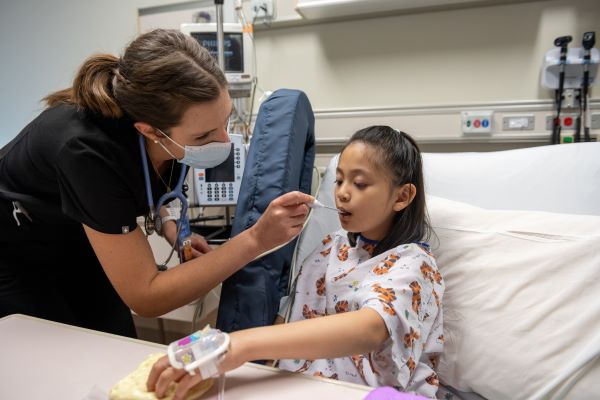
Understanding TBIs in Children
A traumatic brain injury, often called a TBI, happens when someone experiences a significant hit to the head. These injuries can happen when a child has a sports-related incident, fall, or other accident. The impact can cause brain damage ranging from mild to severe traumatic brain injuries.
While concussions, also called mild TBIs, are the most common type of TBI seen in children and typically do not have signs of injury visible on clinical imaging tests, some child with heady injury may have positive findings on imaging. Such findings may include contusions (bruise-like injuries to brain tissue), diffuse axonal injuries (damage to nerve fibers within the brain), and hemorrhage (bleeding) within or around the brain. While physicians often recommend at-home treatments for mild injuries, more severe cases can require specialized treatments, therapies, and procedures to help with healing and to avoid complications.
When properly diagnosed and treated, many patients will fully recover from TBIs. It’s important for families to quickly seek and receive medical care from a pediatric TBI specialist.
Traumatic Brain Injuries We Treat
- Concussion
- Mild Traumatic Brain Injury (mTBI)
- Complicated Mild Traumatic Brain Injury
- Moderate TBI
- Severe TBI
- Persistent Post Concussive Symptoms
- Post Traumatic Headaches
- Autonomic Functions
- Neurocognitive Problems
Why Choose CHOC?
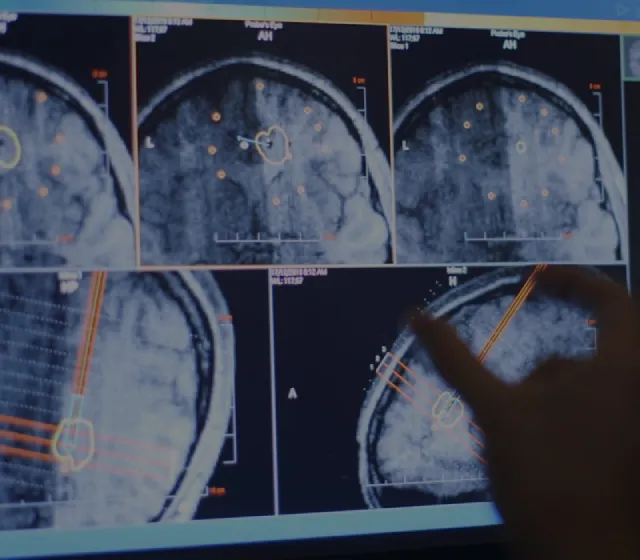
The CHOC TBI program aims to builds families’ confidence throughout their child’s brain injury recovery. Our program offers complete treatment plans by bringing together medical professionals, including:
- Pediatric Neurologists
- Neuropsychologists
- Trauma Specialists
- Physical Medicine and Rehabilitation Specialists
- Sport Medicine Clinicians
- Physical Therapists
- Speech and Language Therapists
As our program grows, we look to increase the number of clinicians, specialties, and locations we offer. We’re also dedicated to building relationships with schools, sports organizations, and families throughout Southern California to teach the community about traumatic brain injuries in kids.
What to Expect at the CHOC TBI Program
TBI Diagnosis at CHOC
While most patients come to our program from a physician referral, a parent or caregiver can ask for a consultation. During this first 90- to 120-minute consultation, your family will meet with a team of experts.
While every child’s case differs, consultations usually involve a neurological exam, symptom sceening, and a brief neuropsychological assessment. Children are typically evaluated by a neurologist and a neuropsychologist at the initial visit.. More complex cases may also require advanced imaging with an MRI or neurodiagnostic studies ( EEG,) often to capture better pictures of the brain and evaluate for possible seizures, respectively. In select cases, other testing may also be recommended.
After the doctor diagnoses your child’s injury, their care team will create a treatment plan. The treatment plan will include educating patients and families about what to expect next, such as further testing, possible treatment plan updates and ongoing recovery.
TBI Treatment at CHOC
For mild head injuries, outpatient treatment is usually recommended. While most outpatient treatment plans recommend a brief period of rest and observation as the brain heals, they can also include medications, nutritional supplements, at-home exercises, rehabilitative therapies, accommodations for school, and technologies like neuromodulation.
For more severe TBI cases, inpatient management is usually often necessary immediately after the injury and some patients may benefit from an extended inpatient rehabilitation program.
Children with traumatic brain injuries benefit from our seamless collaboration across pediatric disciplines. Together, we’re able to serve every child’s unique TBI recovery with specialized care for headaches, vision changes, dizziness, physical mobility, sleep issues, attention and memory problems, mental health challenges, and more.
TBI Recovery at CHOC
After treatment ends, our TBI care team will follow up with your child and family to ensure ongoing recovery. Your child’s recovery plan may include recommendations to help with ongoing symptoms, timelines to return to normal activities, and how to avoid future head injuries. If your child is an athlete, their doctor may conduct baseline testing to measure current brain health before they are cleared return to sports.
See a CHOC Traumatic Brain Injury Expert
Connect with the CHOC Traumatic Brain Injury program today to learn more, schedule a consultation or refer a patient to our clinic.
